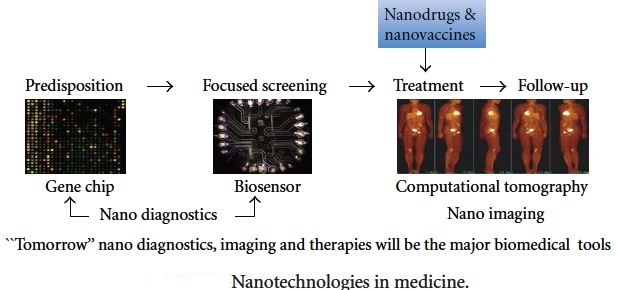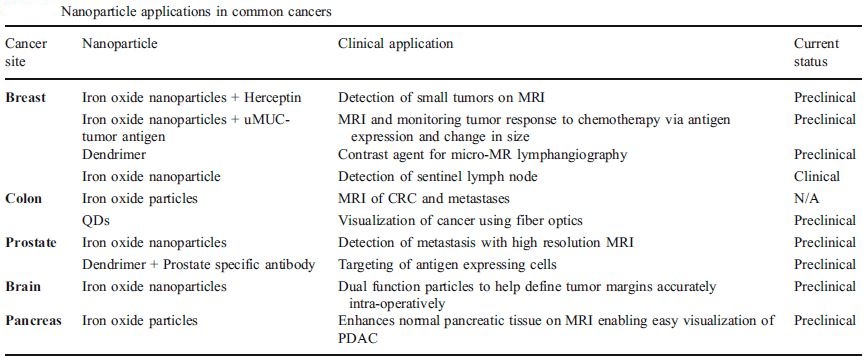Nanotechnology in medicine is starting to be recognized in many sub-fields within medicine itself. One of these subfields where nanotechnology in medicine holds great value is in diagnostics of diseases and illnesses.
The most common way of diagnosing a disease is to identify and observe any present symptoms and then look up these symptoms from a guide, a book, a database, the doctor’s own memory etc. These symptoms, however, must be specific and available in a certain amount to correctly diagnose this disease. For example, the symptoms of a fever and a headache are present in the disease of malaria. However, the same symptoms are present in a regular viral infection as well. Until chills, headaches, sweats and fatigue do not come up, a doctor cannot entirely correctly identify whether malaria is present.
What if there was a way doctors could determine the likelihood of a person or population contracting a disease without one actually acquiring the symptoms of that disease?
With nano-diagnostics, new tools can be developed for early diagnosis of diseases and tracking. Nano-particles can be designed to “mark” certain viruses, bacteria, cells, etc to monitor their movement and activity. "Lab-on-chip" devices can provide disease diagnosis to an outside source without even having to leave the body for analysis by a technician. The disease database would be on the chip itself. Isn't it amazing that with nano-robotics, a doctor can keep 24 hour surveillance on a pathogen or a cell!The following flow chart shows a possible method for disease diagnosis by nanotechnology (Image Citation 11):

“Disease-specific receptors on the surface of cells provide useful targets for nanoparticles. Because nanoparticles can be engineered from components that recognize disease at the cellular level, are visible on imaging studies, and deliver therapeutic compounds, nanotechnology is well suited for the diagnosis of a variety of diseases and conditions such as cancer, tumors, AIDS, etc” (Citation 6).
This quote by researchers in an article on nano-diagnostics perfectly summarizes how nanotechnology in medicine can take diagnostics into a whole new era.
Researchers are currently working on nano-particle diagnostic tools for cancer as well. Some of these are shown in the chart below (Image Citation 12):

The bottom video shows how nanotechnology is creating new and better methods for disease diagnosis.